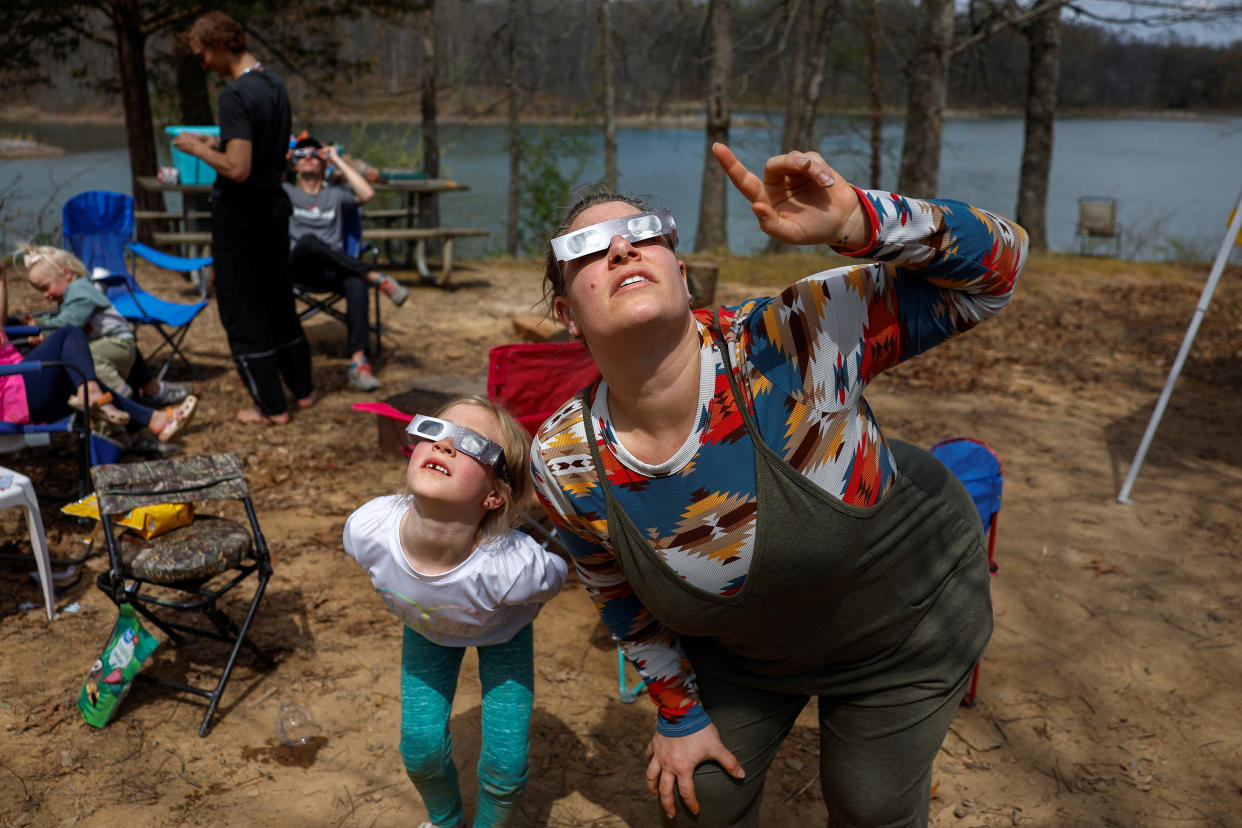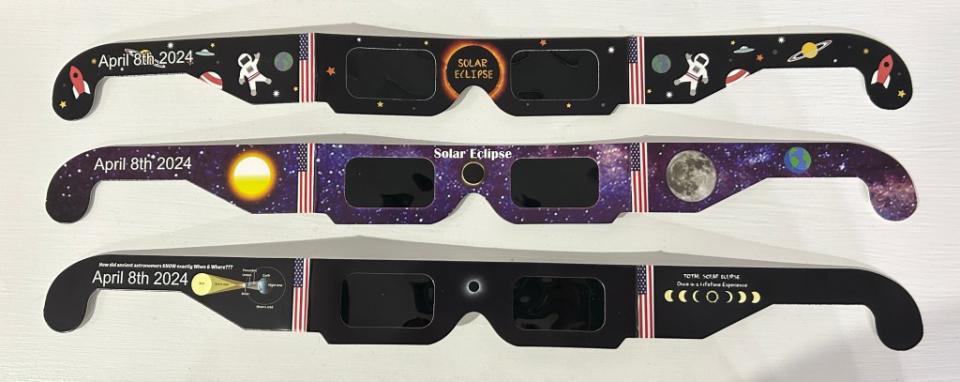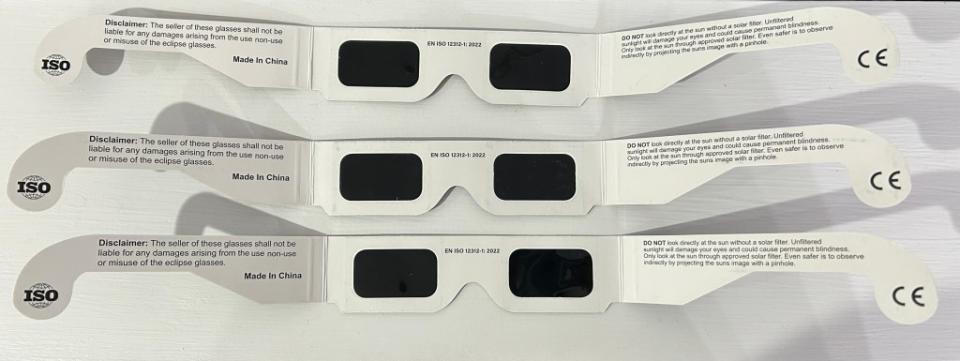These solar eclipse glasses have been recalled for ‘potentially failing to meet safety standards’

If you purchased solar eclipse glasses on Amazon or in Illinois or Missouri, you might want to check them.
Solar eclipse glasses sold on Amazon, at least six stores in Southern Illinois and three in Missouri have been recalled.
The Illinois Department of Health issued an alert warning that the faulty glasses were recalled after “potentially failing to meet safety standards,” according to NBC Chicago 5.

Most of the glasses were sold on Amazon as the “Biniki Solar Eclipse Glasses AAS Approved 2024 – CE & ISO Certified Safe Shades for Direct Sun Viewing (6 Packs)” and stores in Illinois and Missouri — both of which are along the path of totality.
“The recalled glasses are labeled as ‘EN ISO 12312-1:2022,’ the IDPH alert said. “Proper safety glasses should carry the ISO designation of 12312-2.”
Stores that sold the products have also issued warnings about the recalled glasses.
“DO NOT USE! Please check your solar eclipse glasses,” a Facebook post from Fink’s ALPS in Union, Missouri warned about the glasses with an EN ISO number 12312-1: 2022.
Online shoppers in Rochester, New York — which is along the path of totality — were issued a warning of the faulty products on Friday.
Amazon emailed customers to alert them that the product “was not included in the American Astronomical Society’s list of safe suppliers of solar eclipse viewers and filters and therefore may not be safe for viewing a solar eclipse. If you still have this product, out of an abundance of caution, we recommend you not use it for the upcoming eclipse on April 8,” according to WHEC.
Refunds are said to be coming.
The American Astronomical Society recently said that they had evidence that the dangerous fakes had infiltrated the market.
The suspect frames are impersonating legitimate frames made by the company County Qiwei Craft Co., and can be quickly spotted as fakes because they are no darker than regular sunglasses, the AAS warned.
Real solar glasses should be “at least 1,000 times darker than even the darkest regular sunglasses,” advised Rick Fienberg, Project Manager of the AAS Solar Eclipse Task Force.
Real glasses should not allow the user to see anything on a sunny day except “perhaps the Sun’s reflection off a shiny surface or a puddle, which again should appear very faint.”

If the glasses pass that test, users should look at the Sun for about a second and take notice whether its face appears “comfortably bright” in a white, bluish-white, yellow, or orange shade, depending on the filter used.
New York Attorney General Letitia James also weighed in on the issue in a Wednesday press release.
“There are serious risks associated with not using proper eyewear when looking directly at an eclipse, which is why everyone should follow guidance to ensure their solar eclipse glasses are legitimate and safe to use,” the state’s top prosecutor said.
